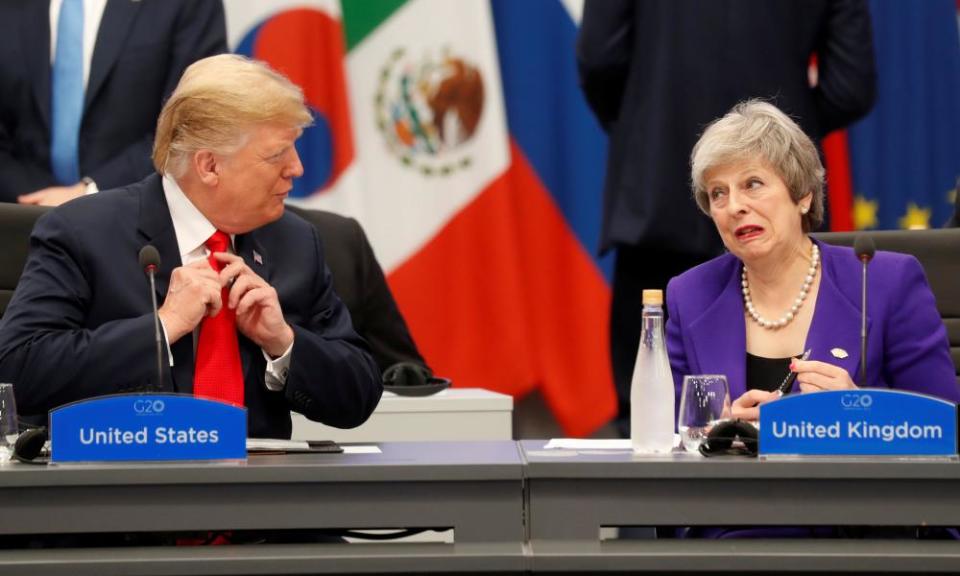When Americans want to understand Brexit, it’s clear Britain is in trouble

How do you explain Brexit to Americans? In a way that doesn’t make the UK look like a complete joke, I mean. In a way that suggests the country retains a modicum of dignity.
That is not a rhetorical question; I would really like to know. You see, as a Briton living in the US, I have found myself being asked to do a lot of impromptu Brexitsplaining over the past two and a half years. I will be at a party, or getting coffee, or walking the dog, and someone will clock my accent. “Oh!” they exclaim. “You’re English? What is going on over there? Have you Brexited yet? Do you still have a prime minister? Is it true your politicians are macing each other?”
These inquiries make me incredibly uncomfortable. Not just because it is hard to know what to say in response, but the very fact these questions are being asked is a reflection of how damaged Britain’s international standing has become. Americans, it is fair to say, are not renowned for their curiosity about the wider world. How badly does your country have to be doing for them to start taking a keen interest in its internal politics? When I first moved to New York, about seven years ago, people would hear my accent and start talking about Harry Potter or the Queen. Nobody wanted to chat about British politics, let alone the House of Commons’ ceremonial mace. But Brexit has changed all that; it has turned the UK into a torrid soap opera by which the world is mesmerised and mystified. Even American celebrities are obsessed with Brexit. Chrissy Teigen, an American model, spoke for large swathes of society when she tweeted: “One of my goals for 2019 is to understand UK politics. I read and read and try and learn but my brain cannot grasp it.”
But I am not sure anyone’s brains can grasp what is happening in the UK at the minute; it defies all logic. As the Wall Street Journal put it, in an essay titled The Great Brexit Breakdown: “From afar, the spectacle of the UK undergoing the national political equivalent of a nervous breakdown has been a source of head-scratching ... The country once defined by its stiff upper lip has been indulging in a kind of orgy of public histrionics more commonly associated with Latin American telenovelas.”
It should be said that, while the US may have been doing a lot of head-scratching about Britain, this has also been accompanied by a fair amount of sympathy. There has been an interesting evolution in (liberal) US attitudes towards Brexit. When the referendum results were announced in 2016, coverage in the US was characterised by a certain schadenfreude. The general sentiment was perhaps best encapsulated by a satirical article in the New Yorker headlined British Lose Right to Claim That Americans Are Dumber. A few months later, of course, Trump won the presidential election and the US was plunged into its own identity crisis.
Britain may have lost the right to claim Americans are dumber, but the US clearly has no right to feel any political superiority. Indeed, it feels as if certain parts of American society now feel a sort of exhausted solidarity with the UK, a relief that they are not the only ones whose country is a raging dumpster fire. A new sort of special relationship has been forged between the UK and the US; we are united by the fact that we have become global jokes.

 Yahoo News
Yahoo News 